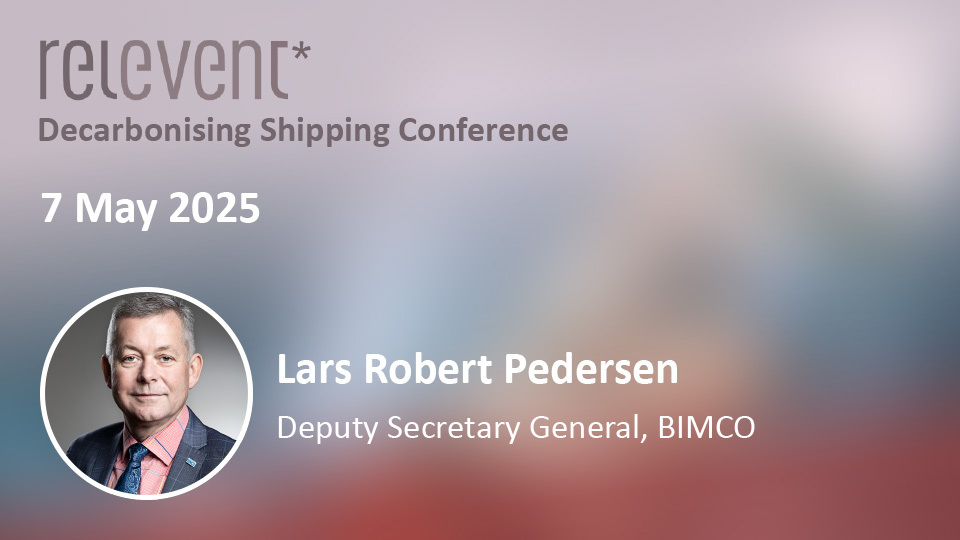Shipping industry takes new step to protect marine environments
Overview
Cleaning a ship’s submerged parts from barnacles and other growths, while the ship is in the water, can transfer invasive species to local marine environments unless it is properly cleaned and the debris is captured. To combat this problem, and to provide clarity and quality assurance to shipowners, ports and government authorities, BIMCO and the International Chamber of Shipping (ICS) have published the first industry standard on in-water cleaning of ships.
“This standard will help protect the environment in the port. Not only that, it will also help every organisation that is part of this process by raising the minimum standard of cleaning several notches higher and ensure that the end result is both a clean ship, and safe working practice,” says David Loosley, BIMCO secretary general.
The standard and the accompanying approval procedure is now available on the BIMCO and ICS websites.
The organisms growing on the ship increases its drag through the water and can reduce fuel efficiency of the ship by as much as 35%, leading to higher fuel bills and higher CO2 emissions. It is therefore important to remove the growths every couple of years.
A number of countries and regions have put biofouling management high on the agenda, with regional and national regulation on the drawing board or already in place. This includes the USA, Australia, the Baltic Sea region, New Zealand, Hawaii and California.
John Stawpert, Manager (Environment and Trade) at the International Chamber of Shipping added: “This new industry standard establishes a benchmark for safe and environmentally sound underwater hull cleaning, an issue that is of increasing concern to the international community. We hope that this first step by industry bodies will allow cleaning companies to demonstrate that their products protect the marine environment, and that shipowners can be confident that their ships are cleaned to a safe and effective level around the world. With these industry standards port authorities can also have confidence that underwater hull cleaning can be completed with minimal risk to the environment by independently approved cleaning companies working to proven high standards.”
According to the industry standard, at least 90% of the macro fouling must be captured by the cleaning company, and effluent water coming back into the sea will have removed organisms and materials down to a microscopic size (0.000001 metres).
Rigorous testing
For BIMCO and the partners involved, the next step is to implement the standard on a small scale and several shipping companies have already signed up to participate.
“It is one of the typical, long term, unglamorous, behind the scenes efforts that the industry undertakes, which will hopefully have a wide-reaching positive impact on the marine environment and the industry,” Loosley says.
The industry will now work to implement the standards with a number of stakeholders, including of paint manufacturers, in-water cleaning companies, shipowners, ports, and classification societies. These stakeholders will have to update their procedures, which will lead to successful cleanings, and ultimately – BIMCO and ICS hopes - to a general wide-spread acceptance of the standard and associated certification and in more ports allowing in-water cleaning.
The standard details planning, the documentation and assessment part of the operation, as well as the actual cleaning, the management of the effluent – the water involved in the cleaning – including the capture of particles, before it is released back into the sea.
The standard also includes:
- Criteria for the cleanliness of water pumped back to sea
- Methods to help shipowners act before the biofouling growth and coverage become severe
- An approval procedure for cleaning companies
- Minimum reporting requirements
- Minimum requirements for an inspection, service and cleaning reports
The standard was developed by a coalition of companies and organisations including:
Akzo Nobel, BIMCO, C-Leanship, CMA Ships, DG Diving Group, Fleet Cleaner, Hapag-Lloyd, Hempel, HullWiper, International Association of Classification Societies, International Chamber of Shipping, Minerva Shipping, Portland Port (UK), Port of Rotterdam and PPG Coatings.
Notes to editors
For further information, or to request an interview, please contact:
Rasmus Nord Jørgensen
Communications Director
Mobile: +45 2168 0421
Email: rnj@bimco.org
About BIMCO
BIMCO is the world's largest international shipping association, with around 1,900 members in more than 120 countries, representing 59% of the world’s tonnage. Our global membership includes shipowners, operators, managers, brokers and agents. BIMCO is a not-for-profit organisation.
About ICS
The International Chamber of Shipping (ICS) represents the world’s national shipowner associations, and over 80% of the world merchant fleet.
Feedback or a question about this information?
VPS Bunker Alerts
Veritas Petroleum Services (VPS) publish regular Bunker Alerts based entirely on fuel samples and have kindly permitted BIMCO’s Members to access this information.
The Bunker Alerts are not intended to be an evaluation of overall bunker quality in the port or area concerned, but usually highlight a specific parameter within the fuel which has raised a quality issue.
Latest ice reports for members
Latest piracy reports
Latest industry releasable threats
ELSEWHERE ON BIMCO
Contracts & Clauses
All of BIMCO's most widely used contracts and clauses as well as advice on managing charters and business partners.
Learn about your cargo
For general guidance and information on cargo-related queries.
BIMCO Publications
Want to buy or download a BIMCO publication? Use the link to get access to the ballast water management guide, the ship master’s security manual and many other publications.
About a new business partner
We can help members check new business partners. We also help to recover millions of USD (undisputed) funds every year.




